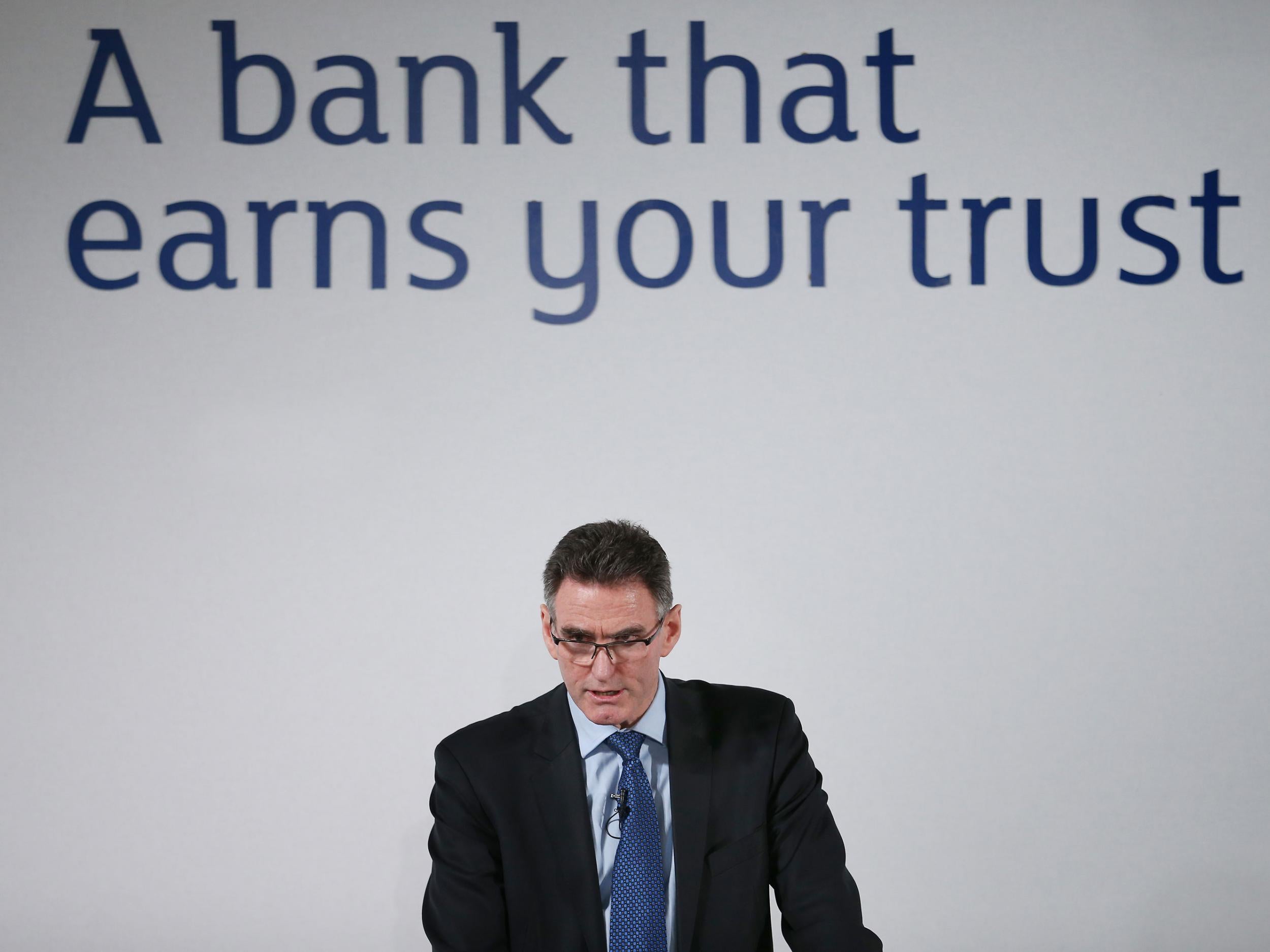RBS: Banking's big ugly is bathed in red ink again
Finding positives in its results is like finding your tickets to a panto have survived your house burning down

Your support helps us to tell the story
From reproductive rights to climate change to Big Tech, The Independent is on the ground when the story is developing. Whether it's investigating the financials of Elon Musk's pro-Trump PAC or producing our latest documentary, 'The A Word', which shines a light on the American women fighting for reproductive rights, we know how important it is to parse out the facts from the messaging.
At such a critical moment in US history, we need reporters on the ground. Your donation allows us to keep sending journalists to speak to both sides of the story.
The Independent is trusted by Americans across the entire political spectrum. And unlike many other quality news outlets, we choose not to lock Americans out of our reporting and analysis with paywalls. We believe quality journalism should be available to everyone, paid for by those who can afford it.
Your support makes all the difference.We’ve seen the good (Lloyds, debatably Barclays), and the bad (HSBC), from the banks’ results this year. Now it’s the turn of the ugly.
Royal Bank of Scotland lost taxpayers and the bank’s minority investors another £7bn in 2016. That was somewhat worse than the already low expectations of the City of London, at least as defined by a consensus of analysts’ forecasts compiled by, erm, Royal Back of Scotland.
Looking for positives with RBS sometimes feels like looking for positives when your house has burned down. Well, could be worse, look the tickets for the local am-dram panto at the village hall somehow survived the flames!
There are plenty who would argue that we shouldn’t even try. The rot at RBS continued to fester long after its chief cause (Fred Goodwin) was packed off to his pad in the south of France.
Scandals such as the shameful treatment of struggling small-business borrowers continued to percolate long after his misrule was brought to an end, as did Libor and foreign exchange fixing.
Those who put the case for a break up so that something better could have risen from the ashes, and so that the boil of a toxic culture could more easily have been lanced, lost the battle. But they’ve won the debate.
Still, as we’ve been here so many times before, let’s try and see if we can find a pair of tickets to the Cornley Drama Society’s production of Peter Pan.
Chief executive Ross McEwan thinks they’re there. “Our strategy is actually working,” he said in a video interview put out by the bank. Now, you, stop laughing at the back. It’s not big and it’s not clever.
Because, you know what, there is a grain of truth in that statement.
Ian Gordon, banking analyst at Investec, backs it up: “As ever, there is, we think, a perfectly respectable ‘underlying’ business performance buried under all this.” The “all this” being the fines, write offs, and provisions for fines that spoil the RBS party every year.
He points out that against his forecasts, RBS’s underlying profits, shorn of all the gunk, were a bit better than expected. So were the bank’s revenues.
The problem faced by RBS, its owners, and by McEwan in particular, is Gordon and himself don’t expect this half decent bank to emerge blinking in the sunlight until 2018 at the earliest. Gordon doesn’t expect it to turn into something “normally profitable” before 2020.
Even if McEwan wants to stick around that long, his political masters, who look after the 72 per cent stake we taxpayers hold, may not allow him to. What’s probably keeping him in post at the moment, as I recently wrote, is that there isn’t exactly a queue of credible replacements banging on the door of 11 Downing Street.
McEwan has some notable black marks on his resume. The botched (and now shelved) sale of Williams & Glyn for starters. The bank’s handling of a shareholder lawsuit over its £12bn rights issue in 2008, which could and should have been settled earlier, is another. Most institutional investors have now been bought off, but a trial is due to start within a matter of weeks, because the bank has yet to conclude a deal with small shareholders, racking up yet more costs.
That trial could wake some sleeping dogs. RBS really doesn’t want that to happen.
McEwan is planning an ambitious programme of cost cuts to help the “bank that earns your trust” and makes money to emerge in 2018. Cuts haven’t always served RBS well in the past. Fred the Shred sacrificed customer service and the health of the bank’s IT systems on their altar.
McEwan had best hope that he can show some more positive results from them, because if he can’t, he’s probably done. It’s one thing to say your strategy is working. But if no one can see it, and no one can feel it, it doesn’t do you a lot of good.
Now, dust off those tickets, it’s panto time. D’you think they’ll sell ice cream?
Subscribe to Independent Premium to bookmark this article
Want to bookmark your favourite articles and stories to read or reference later? Start your Independent Premium subscription today.
Join our commenting forum
Join thought-provoking conversations, follow other Independent readers and see their replies
Comments